Brad Farris, principal at Anchor Advisors, stopped by the blog just last month. However, he shared something so insightful in his own newsletter that we couldn’t resist featuring him again.
As a service business, we sometimes get jealous of our product-selling brethren. You have something tangible to sell. You have something tangible to budget. And you can use your website to generate revenue.
But as Brad reminds us, we service providers can make money from our websites, too! Not by selling and shipping products, of course, but by generating leads, showcasing our expertise and other money-making methods that Brad outlines below.
You can also read this article on the Anchor Advisors site, where you’ll find more articles brimming with business wisdom.
===
Ten years ago, our goal was to have an “Internet presence.” Why? Just because. So we put up our drab-looking, copy-heavy, hard-to-find websites with a goal of being nothing more than “present.” And we were good with that.
But today, just being “present” doesn’t cut it. The Internet has evolved and so has what we expect – or should expect – from it. These days, we aim for our websites not to merely exist … but to work hard for us and make us money.
Now you may be thinking, “Oh, you must be talking about companies that sell products. That’s not me. I run a service business.” You know what? I am talking to you! No matter what kind of business or organization you operate, your website should be making you money, whether it’s directly or indirectly.
Here are a few examples of what your website can do:
Generate leads. SEO and content marketing work! In fact, they work so well that I now consider them as investments in my business, not expenses. How do they make me money? They connect the people who need my services with my business. I’ve gotten two great leads just in the last week, which I can credit to SEO and content marketing. My clients have seen the same kinds of results. SEO company Digital Third Coast receives about 95 percent of their leads from their website, and Caxy generates about 50 percent of their leads online. Impressive!
Sell e-books. Is there something that you keep teaching people (especially your prospects and customers)? Write it down. I created two e-books – Business Owner’s Champion and Ask Your Budget – which I sell on my website. Writing a book is difficult, but an e-book is short and a good way to get some practice with writing. It also helps establish your expertise.
Put valuable information behind a paywall. You may have some great information that you want to share, but not necessarily for free. So then sell it! For example, Lifemeetswork.com launched a fee-based members-only section of its website in which members can gain access to valuable information.
Attract people from within your industry. Candy Beauchamp from offassist.com started a membership website for other VAs like herself at valeague.com, where VAs can share information and network. This site helps promote VAs (which helps make them money) and they also charge for memberships.
Display your expertise. Blogs, e-newsletters and articles are a great way to generate interest in your business. When you blog, whether with words, or video, you show people what you know. You don’t have to tell them “I’m really smart;” they can see it for themselves. This kind of content is also easy for others to share around, providing virtual introductions for you. Search engines love this type of content, too.
Now ask yourself: Does your website make your business money in any of these ways? If your answer is “No,” then things need to change. Maybe one of these scenarios won’t work for you, but maybe there is something that will work. It’s literally worth a try!
===
Brad Farris provides small business consulting in Chicago with Anchor Advisors, Ltd. Anchor Advisors has been helping business founders to achieve growth since 2001. From building a strategic business plan to optimizing employee retention strategies, Anchor Advisors will help you to own your course.






